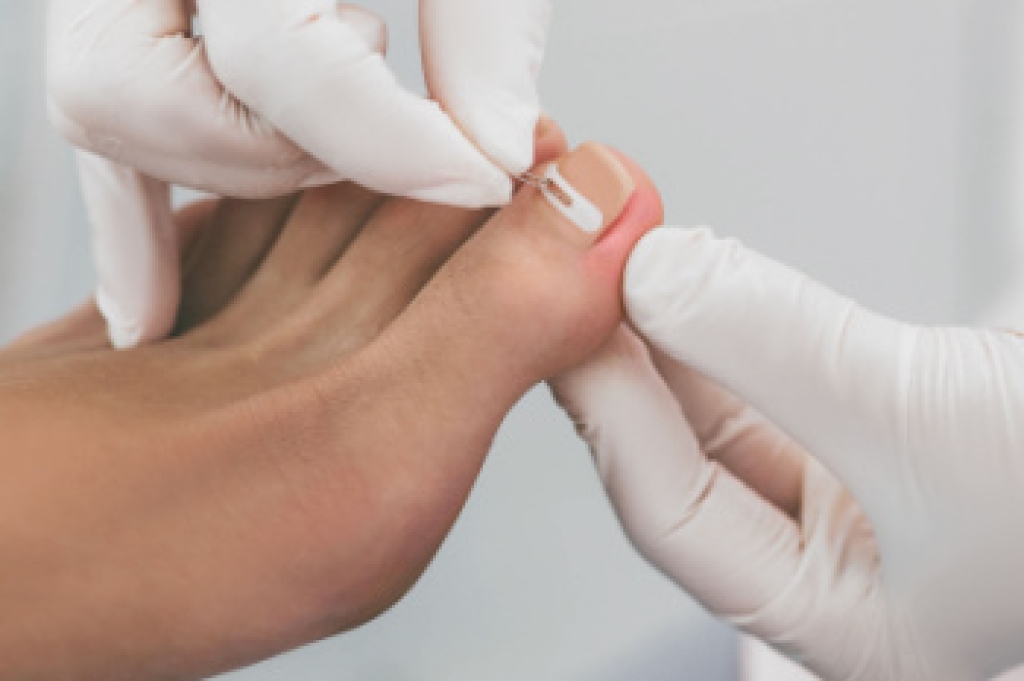
Ingrown toenails occur when the edge of the toenail grows into the surrounding skin, causing pain, swelling, and sometimes infection. Common causes include improper nail trimming, where nails are cut too short or rounded, leading to the nail growing into the skin. Tight or ill-fitting shoes can also press the toenail into the skin, making the problem worse. Genetic factors and trauma to the toenail, such as stubbing or injury, may contribute to the condition as well. Preventing ingrown toenails involves several strategies. First, trim toenails straight across without rounding the edges, and avoid cutting them too short. Wearing well-fitting shoes with enough toe room can reduce pressure on the toenails. Maintaining good foot hygiene helps prevent infections if an ingrown toenail does occur. If symptoms persist or an infection develops, it's suggested you contact a podiatrist for appropriate treatment and to avoid complications.
Ingrown toenails can become painful if they are not treated properly. For more information about ingrown toenails, contact Judson Siegel, DPM of Assabet Family Podiatry. Our doctor can provide the care you need to keep you pain-free and on your feet.
Ingrown Toenails
Ingrown toenails occur when a toenail grows sideways into the bed of the nail, causing pain, swelling, and possibly infection.
Causes
- Bacterial infections
- Improper nail cutting such as cutting it too short or not straight across
- Trauma to the toe, such as stubbing, which causes the nail to grow back irregularly
- Ill-fitting shoes that bunch the toes too close together
- Genetic predisposition
Prevention
Because ingrown toenails are not something found outside of shoe-wearing cultures, going barefoot as often as possible will decrease the likeliness of developing ingrown toenails. Wearing proper fitting shoes and using proper cutting techniques will also help decrease your risk of developing ingrown toenails.
Treatment
Ingrown toenails are a very treatable foot condition. In minor cases, soaking the affected area in salt or antibacterial soaps will not only help with the ingrown nail itself, but also help prevent any infections from occurring. In more severe cases, surgery is an option. In either case, speaking to your podiatrist about this condition will help you get a better understanding of specific treatment options that are right for you.
If you have any questions, please feel free to contact our offices located in Plainville, Marlborough, and Somerset, MA . We offer the newest diagnostic and treatment technologies for all your foot care needs.
